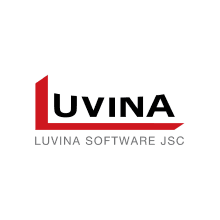Top Cloud Computing Companies in Việt Nam
Are you Searching for top cloud companies in Việt Nam that provide excellent cloud services? Look at the list of Top cloud providers with client reviews and ratings. Today, many companies in Việt Nam are leveraging cloud computing to transform their business. The exponential rise in the adoption of cloud solutions in the global market has led to a tremendous increase in the number of cloud computing service providers. This makes it difficult for businesses to Looking Top cloud providers. BusinessFirms solve this complex puzzle by leveraging its comprehensive research methodology and listing down Top cloud companies in Việt Nam. Look at the list of internationally acclaimed Top cloud computing companies in Việt Nam that provide amazing cloud services: The cloud computing space is growing and it is growing fast. It has become popular because it provides ample storage space and is convenient to access. The increase in the demand for cloud solutions by businesses has led to a large number of cloud computing companies popping up in the market. Looking for a company from a pool of service providers to create the right cloud infrastructure for your business is an easy task. A cloud service review will help you choose the Top company in Việt Nam for your cloud project needs.
1 Companies
Luvina is a global Software Development Outsourcing company providing full services in the software development field from designing, coding, and testing, to maintenance, system operation and support. Founded in 2004, our objective has always been to be a trusted and long-term partner to our clients by being deeply committed to helping companies drive growth and revenue. With 2 options in the software development outsourcing model, Project-based and Offshore Development Center, Luvina provides global clients and partners with the flexibility to use IT specialist resources efficiently. Our clients and partners are businesses in diverse industries such as finance, banking, insurance, e-commerce, human resources, energy, manufacturing, construction, information technology and communicationRead More
$25-49/hr
500 to 999
0
Việt Nam
